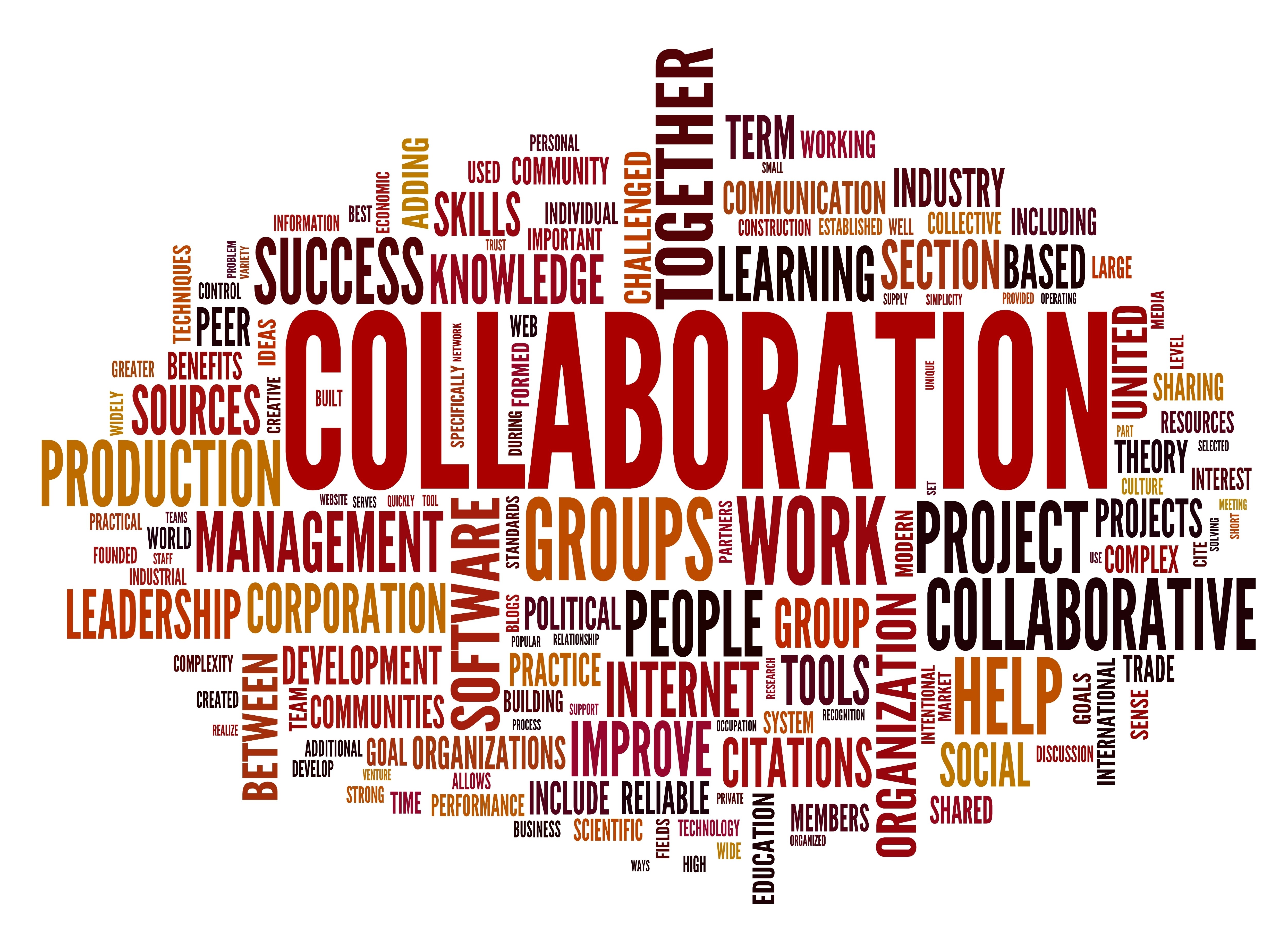Ideas For Science Exhibition 2025: Embracing Innovation And Shaping The Future
Ideas for Science Exhibition 2025: Embracing Innovation and Shaping the Future
Related Articles: Ideas for Science Exhibition 2025: Embracing Innovation and Shaping the Future
- Cheap And Easy Lunch Ideas For 2025
- 16 Spooktacular Halloween Ideas For 2025
- Ideas For Wipro’s Applications And Data 2025: A Vision For The Future
- Black And White Bathroom Tile Ideas For A Timeless And Chic Space In 2025
- Bedroom Images Ideas 2025: Envisioning The Future Of Sleep
Introduction
With great pleasure, we will explore the intriguing topic related to Ideas for Science Exhibition 2025: Embracing Innovation and Shaping the Future. Let’s weave interesting information and offer fresh perspectives to the readers.
Table of Content
Video about Ideas for Science Exhibition 2025: Embracing Innovation and Shaping the Future
Ideas for Science Exhibition 2025: Embracing Innovation and Shaping the Future

The science exhibition of 2025 promises to be a transformative event, showcasing groundbreaking innovations and inspiring the next generation of scientists and engineers. As we approach this pivotal moment, it is essential to start brainstorming ideas that will capture the imagination and push the boundaries of scientific inquiry.
1. Artificial Intelligence and Machine Learning: Unlocking the Power of Data
Artificial intelligence (AI) and machine learning (ML) are rapidly transforming industries and reshaping our understanding of the world. Science exhibition projects in this field could explore:
- Developing AI algorithms that can analyze vast amounts of data to identify patterns and predict outcomes
- Creating ML models to optimize processes, improve decision-making, and automate tasks
- Investigating the ethical implications and societal impact of AI and ML
2. Biotechnology and Genetic Engineering: Advancing Human Health
Biotechnology and genetic engineering hold immense potential for improving human health and well-being. Projects in this area could focus on:
- Developing gene therapies to treat genetic diseases and improve life expectancy
- Engineering microorganisms to produce biofuels, pharmaceuticals, and other useful substances
- Exploring the ethical considerations and potential risks associated with genetic modification
3. Climate Change and Environmental Sustainability: Tackling the Global Crisis
Climate change and environmental sustainability are among the most pressing challenges facing our planet. Science exhibition projects could address:
- Developing renewable energy technologies to reduce greenhouse gas emissions
- Investigating ways to mitigate the impacts of climate change on ecosystems and human communities
- Promoting sustainable practices and raising awareness about environmental issues
4. Nanotechnology and Materials Science: Shaping the Future of Technology
Nanotechnology and materials science are revolutionizing the development of new materials and devices. Projects in this field could explore:
- Creating nanomaterials with unique properties for applications in electronics, medicine, and energy
- Developing self-healing materials that can repair themselves when damaged
- Investigating the potential risks and benefits of nanotechnology
5. Space Exploration and Astronomy: Unraveling the Mysteries of the Universe
Space exploration and astronomy continue to captivate the human imagination. Projects in this area could focus on:
- Developing new spacecraft and technologies for exploring distant planets and moons
- Studying the formation and evolution of stars, galaxies, and the universe
- Searching for extraterrestrial life and understanding its potential implications
6. Robotics and Automation: Enhancing Human Capabilities
Robotics and automation are rapidly changing the way we live and work. Projects in this field could explore:
- Designing and building robots that can perform complex tasks and interact with humans
- Developing autonomous vehicles and drones for transportation, delivery, and exploration
- Investigating the ethical implications and societal impact of robotics and automation
7. Quantum Computing: Unleashing the Power of Supercomputing
Quantum computing has the potential to revolutionize scientific research and technological development. Projects in this area could focus on:
- Building quantum computers and developing algorithms for solving complex problems
- Exploring applications of quantum computing in areas such as medicine, materials science, and finance
- Investigating the potential risks and benefits of quantum computing
8. Synthetic Biology and Bioengineering: Creating New Biological Systems
Synthetic biology and bioengineering allow scientists to design and construct new biological systems from scratch. Projects in this field could explore:
- Creating artificial cells and organisms with specific functions
- Engineering biological systems to produce useful compounds and materials
- Developing synthetic biology tools for medical diagnostics and therapeutics
9. Social Sciences and Humanities: Exploring the Human Experience
Science exhibitions are not limited to STEM fields. Projects in the social sciences and humanities can also contribute to our understanding of the world and our place in it. Projects in this area could focus on:
- Investigating the impact of technology on human behavior and social interactions
- Exploring the role of culture, history, and language in shaping human experiences
- Analyzing social and economic issues and proposing solutions
10. Interdisciplinary Projects: Breaking Down Boundaries
Interdisciplinary projects that combine elements from multiple scientific fields can lead to groundbreaking innovations. Projects in this area could explore:
- Developing new medical technologies that integrate AI, biotechnology, and materials science
- Creating sustainable energy systems that combine renewable energy sources with energy storage and distribution technologies
- Designing robotic systems that incorporate elements of social sciences and psychology
Additional Considerations
When developing ideas for science exhibition projects, it is important to consider the following:
- Relevance: The project should address a significant scientific issue or challenge.
- Originality: The project should offer a unique perspective or approach to the chosen topic.
- Feasibility: The project should be achievable within the given timeframe and resources.
- Impact: The project should have the potential to make a positive contribution to society or the scientific community.
Conclusion
The science exhibition of 2025 is an opportunity to showcase the transformative power of science and inspire the next generation of innovators. By embracing these ideas and exploring new frontiers, we can shape the future and create a better world for all.
![[IMGSRCTITLE2]](https://i.ytimg.com/vi/0PHIxL0uUkc/maxresdefault.jpg)
![[IMGSRCTITLE3]](https://i.ytimg.com/vi/U7dCCZzJNMw/maxresdefault.jpg)
![[IMGSRCTITLE4]](https://i.ytimg.com/vi/pFPliB4KwUg/maxresdefault.jpg)
![[IMGTITLE5]](https://i.ytimg.com/vi/LYYTk1MU0Go/maxresdefault.jpg)
![[IMGTITLE6]](http://www.infrastructure-intelligence.com/sites/default/files/Engineer%20Your%20Future%20exhibition%20crop.jpg)
![[IMGTITLE7]](https://i.ytimg.com/vi/Umw7-MeJsdI/maxresdefault.jpg)
![[IMGTITLE8]](https://i.ytimg.com/vi/V7GO5RAOMw0/maxresdefault.jpg)
![[IMGTITLE9]](https://i.ytimg.com/vi/MnYfx2qMz0A/maxresdefault.jpg)
Closure
Thus, we hope this article has provided valuable insights into Ideas for Science Exhibition 2025: Embracing Innovation and Shaping the Future. We thank you for taking the time to read this article. See you in our next article!

![[IMGSRCTITLE2]](https://www.fluentin3months.com/wp-content/uploads/2021/09/best-way-to-learn-spanish-683x1024.jpg)
![[IMGSRCTITLE3]](https://i.pinimg.com/originals/fb/cb/27/fbcb27364b906db97747e6eb17eb0084.jpg)
![[IMGSRCTITLE4]](https://fluencycorp.com/wp-content/uploads/2019/03/espanol.jpg)
![[IMGTITLE5]](https://www.tellmeinspanish.com/wp-content/uploads/2022/06/Types-of-Futures-in-Spanish-1024x576.jpeg)
![[IMGTITLE6]](https://www.gvsu.edu/cms4/asset/116367E5-FD53-3BCB-8D6879FA0EE4074F/spanishinfographic-01[1440084124].png)
![[IMGTITLE7]](https://www.speakinglatino.com/wp-content/uploads/2012/06/Facts-About-the-Spanish-Language-Infographic.png)
![[IMGTITLE8]](https://www.tellmeinspanish.com/wp-content/uploads/2022/06/How-to-Form-the-Future-Tense-in-Spanish.jpeg)
![[IMGTITLE9]](https://i.pinimg.com/originals/46/7c/c5/467cc505d16bcf2393cbb4bddb64a20a.jpg)

![[IMGSRCTITLE2]](https://www.fluentin3months.com/wp-content/uploads/2021/09/future-tense-spanish.jpg)
![[IMGSRCTITLE3]](https://i.ytimg.com/vi/Kkf_GWPrZrk/maxresdefault.jpg)
![[IMGSRCTITLE4]](http://blog.acis.com/wp-content/uploads/2017/10/25-Interesting-Facts-About-Spanish-Culture-Infographic.jpg)
![[IMGTITLE5]](http://prodimage.images-bn.com/pimages/9781264268047_p0_v1_s1200x630.jpg)
![[IMGTITLE7]](https://i.ytimg.com/vi/gSUIkWZi_Jo/maxresdefault.jpg)
![[IMGTITLE8]](https://spanishviaskype.com/wp-content/uploads/2019/11/Infographic-future-simple_Spanish-Grammar-600x849.jpg)
![[IMGTITLE9]](https://spanishviaskype.com/wp-content/uploads/2021/05/the-future-simple-in-spanish-.png)

![[IMGSRCTITLE2]](https://cdn.thecollector.com/wp-content/uploads/2022/02/microscope-and-printing-press-renaissance-inventions.jpg?width=828u0026quality=70)
![[IMGSRCTITLE3]](https://img.theculturetrip.com/450x/smart/wp-content/uploads/2019/05/a9w5x2.jpg)
![[IMGSRCTITLE4]](https://www.letsbegamechangers.com/wp-content/uploads/2022/04/rafael-sanzio-da-urbino-april-6-or-march-28-1483-april-6-1520-the-school-of-athens-or-scuola-di-atene-in-italian-is-one-of-the-most-famous-paintings-by-the-italian-renaissance-artist-raphael.jpg)
![[IMGTITLE5]](https://brewminate.com/wp-content/uploads/2019/04/041719-25-History-Renaissance.jpg)
![[IMGTITLE6]](https://brewminate.com/wp-content/uploads/2019/04/041719-33-History-Renaissance.jpg)
![[IMGTITLE7]](https://img.theculturetrip.com/1440x/smart/wp-content/uploads/2019/05/shutterstock_401070058.jpg)
![[IMGTITLE8]](https://www.teacherdallas.com/uploads/8/2/9/9/82991326/top-10-inventions.jpg)
![[IMGTITLE9]](https://infographicnow.com/wp-content/uploads/2018/12/Educational-infographic-Des-grandes-inventions-de-la-la-Renaissance.jpg)

![[IMGSRCTITLE2]](https://preview.redd.it/agprgcrhm4v91.jpg?auto=webpu0026s=53ca2b75e6db01ed824d609877f3d825dcebbd62)
![[IMGSRCTITLE3]](https://preview.redd.it/4z5ev7av4cca1.jpg?width=640u0026crop=smartu0026auto=webpu0026s=31a3e3409e217883aec87764103a4010387bdb1b)
![[IMGSRCTITLE4]](https://cdn.bfldr.com/SH6M70M3/as/hrh9rc7cqmjqpqhxcsh9t/rhyme_without_reason_trio_ideas?width=719u0026height=464u0026fit=cropu0026auto=webp)
![[IMGTITLE5]](https://blogger.googleusercontent.com/img/b/R29vZ2xl/AVvXsEgFp4mFZ3vNBYrcUvtt3pHfnV2J2Qih4FxlL4K53m5GlKS-QdNXxzhBgqOIsMp4kbrm0oEkbDEr5WUMKTVrZI51MJWdqaiNRwm72fB9CTe5j8_ECoXymL9kNwJVm2LnwfsBhkQXGx76EbEK7Goveyp-BuXs-4Gdp2HS4QzxDC_1CqBQ202QZIAL7vh7/w640-h360/Rhyme-Without-Reason-Costume.jpg)
![[IMGTITLE6]](https://i0.wp.com/ideahello.com/wp-content/uploads/2023/05/rhyme-without-reason-ideas.webp)
![[IMGTITLE7]](https://www.actingthepart.com.au/wp-content/uploads/2023/06/Edna-Everage-Beverage.jpg)
![[IMGTITLE8]](https://www.comicsandcosplay.com/wp-content/uploads/2023/02/rhyme-without-reason-costume-15-819x1024.webp)
![[IMGTITLE9]](https://www.tgigreek.com/wp-content/uploads/2022/09/GPB-UGARhymeWithoutReason22943311-22352.jpg)

![[IMGSRCTITLE2]](https://i.pinimg.com/originals/c3/da/59/c3da5934c767ceed551c40e7fce08a61.jpg)
![[IMGSRCTITLE3]](https://assets-blog.fundera.com/assets/wp-content/uploads/2020/01/14081414/image1221.png)
![[IMGSRCTITLE4]](https://www.startus-insights.com/wp-content/uploads/2022/07/Innovation-management-trends-SharedImg-StartUs-Insights-noresize-1-900x506.png?is-pending-load=1)
![[IMGTITLE6]](https://i.pinimg.com/originals/06/dc/cc/06dcccbcf0f10bfa9bb99b33e66cb8b2.png)
![[IMGTITLE7]](https://assets-blog.fundera.com/assets/wp-content/uploads/2019/07/12150401/The-15-best-small-business-ideas.png)
![[IMGTITLE8]](https://bigdataanalyticsnews.com/wp-content/uploads/2022/01/strategic-technology-trends-2023.jpg)
![[IMGTITLE9]](https://myinvestmentideas.com/wp-content/uploads/2020/01/Future-Business-Ideas-New-Business-Ideas-for-2020-and-beyond.jpg)
![[IMGSRCTITLE3]](https://architecture2030.org/wp-content/uploads/2018/02/e-news-cover_cropped-01.png)
![[IMGSRCTITLE4]](https://media.licdn.com/dms/image/D4E12AQEL2_p4XRH5nA/article-cover_image-shrink_720_1280/0/1706197509645?e=2147483647u0026v=betau0026t=bKH-xNyutUBgiDsGKxulWO-DY9S8x6X_yRQJzm1HQJo)
![[IMGTITLE5]](https://commons.erau.edu/assets/md5images/bcc0aaac8d7130b72532cb33c38a203a.png)
![[IMGTITLE6]](https://static.vecteezy.com/system/resources/previews/001/871/536/non_2x/innovation-in-work-increase-creativity-and-teamwork-with-ideas-and-lights-concept-ilustration-can-use-for-landing-page-template-ui-web-mobile-app-poster-banner-flyer-document-website-free-vector.jpg)
![[IMGTITLE7]](https://ideon.se/wp-content/uploads/2023/03/InnovationDay-2023-1280x720.jpg)
![[IMGTITLE8]](https://img-cdn.thepublive.com/fit-in/1280x960/filters:format(webp)/bnn/media/media_files/223c3bfd069677b2ec8dc37b7eeb9a2c1fcc58ddfdef3d83ff44e5b06642b895.jpg)
![[IMGTITLE9]](https://blogs.microsoft.com/wp-content/uploads/prod/2023/01/iStock-1190108780-scaled.jpg)

![[IMGSRCTITLE2]](https://static.vecteezy.com/system/resources/previews/002/167/373/original/sharing-business-ideas-collaboration-meeting-sharing-knowledge-teamwork-or-people-thinking-the-same-idea-concept-smart-thinking-businessmen-people-office-workers-team-up-share-lightbulb-lamp-idea-vector.jpg)
![[IMGSRCTITLE3]](https://static.vecteezy.com/system/resources/previews/007/609/455/original/people-have-idea-good-idea-sharing-sharing-knowledge-collaboration-business-idea-generating-characters-sharing-ideas-illustration-creative-ideas-sharing-person-teamwork-with-solution-vector.jpg)
![[IMGSRCTITLE4]](https://static.vecteezy.com/system/resources/previews/008/151/347/original/sharing-business-ideas-collaboration-meeting-sharing-knowledge-teamwork-or-people-thinking-the-same-idea-concept-smart-thinking-businessmen-people-office-workers-team-up-share-lightbulb-lamp-idea-vector.jpg)
![[IMGTITLE5]](https://thumbs.dreamstime.com/z/hands-holding-writing-slates-arrows-pointing-share-ideas-concept-share-ideas-concept-whiteboard-159330836.jpg)
![[IMGTITLE6]](https://www.designandexecute.com/designs/wp-content/uploads/2016/02/collaboration-illustration.jpg)
![[IMGTITLE7]](https://thumbs.dreamstime.com/z/concept-share-ideas-illustration-151698022.jpg)
![[IMGTITLE8]](https://www.powerthesaurus.org/_images/terms/share_ideas-synonyms-2.png)
![[IMGTITLE9]](https://thumbs.dreamstime.com/b/sharing-business-ideas-collaboration-meeting-knowledge-teamwork-people-thinking-same-idea-concept-smart-businessmen-office-234011200.jpg)

![[IMGSRCTITLE2]](https://www.somosmamas.com.ar/wp-content/uploads/2019/03/desayunos-sorpresa-globo-corazon-1.jpg)
![[IMGSRCTITLE3]](https://www.somosmamas.com.ar/wp-content/uploads/2019/03/desayunos-sorpresa-romantico-chispeante.jpg)
![[IMGSRCTITLE4]](https://cdn-0.somosmamas.com.ar/wp-content/uploads/2019/03/desayunos-sorpresa-feliz-cumpleanos.jpg)
![[IMGTITLE5]](https://i.pinimg.com/736x/79/89/dd/7989dde678aabc2fa04745f915f1ee4e.jpg)
![[IMGTITLE6]](https://www.somosmamas.com.ar/wp-content/uploads/2019/03/desayuno-infantil-merienda-1-1024x878.jpg)
![[IMGTITLE7]](https://i.pinimg.com/originals/39/37/cf/3937cf8ea2bb45ea52b09910560fe306.jpg)
![[IMGTITLE8]](https://www.somosmamas.com.ar/wp-content/uploads/2019/03/desayunos-sorpresas-a-domicilio-3-1.jpg)
![[IMGTITLE9]](https://i.pinimg.com/originals/2d/3b/8b/2d3b8b7579997b6a9bff444d53477c6d.jpg)

![[IMGSRCTITLE2]](https://img.freepik.com/premium-photo/anime-style-evolution-cyborg-anime-girl-embracing-japanese-kawaii-essence-digital-art_950157-2833.jpg?w=826)
![[IMGSRCTITLE3]](https://beautifuldawndesigns.net/wp-content/uploads/2021/05/cool-anime-drawing-ideas3.jpeg)
![[IMGTITLE5]](https://www.artsydee.com/wp-content/uploads/2023/06/Anime-Drawing-Ideas-Boy-2-1024x1024.jpg.webp)
![[IMGTITLE6]](https://i.ytimg.com/vi/EZWuBl1KWcc/maxresdefault.jpg)
![[IMGTITLE7]](https://i.pinimg.com/originals/91/9f/c9/919fc9431ee5e90497267379fb7aad74.jpg)
![[IMGTITLE8]](https://i.ytimg.com/vi/1h-ZYtHCB4k/maxresdefault.jpg)
![[IMGTITLE9]](https://www.frikitimes.com/img/animetimeskip1.jpg)